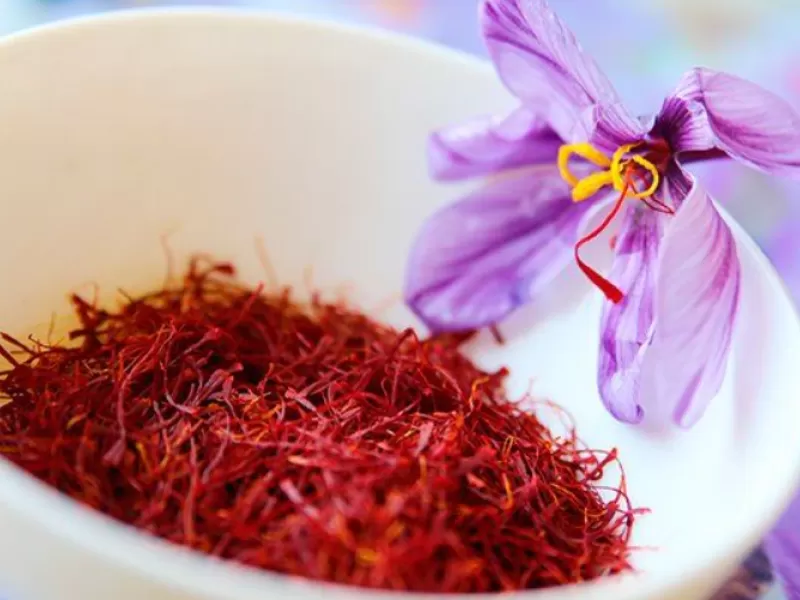Everything You Need to Know About Vaginal Lubricants
İçindekiler
- Everything You Need to Know About Vaginal Lubricants
- Who Can Use Vaginal Lubricants?
- Types of Sexual Lubricants
- Water-based Lubricant
- Recommended Option
- Silicone-based Lubricant
- Oil-based Lubricants
- Key Considerations When Choosing a Lubricant
- What Should Be Avoided?
- Are Lubricants and Vaginal Moisturizers the Same?
- How to Use Sexual Lubricants Effectively
- Are There Any Side Effects?
- Conclusion
- Important Note
When a woman is sexually aroused, the vagina naturally lubricates itself.
If the vagina is dry, sexual intercourse may become painful and could damage vaginal tissues. Vaginal dryness can result from hormonal changes, menopause, anxiety, infections, aging, or medication use. This may cause pain during intercourse, injury to both the penis and vagina, reluctance toward future sexual activity, and other complications. Lubricants help artificially moisten the vagina.
Artificial lubricants can enhance arousal, increase pleasure, keep the vaginal skin soft, and most importantly, reduce friction during penetration.
Not sure which type of lubricant to buy? Continue reading to learn about water, oil, silicone, and natural options, product suggestions, usage tips, and more.
Who Can Use Vaginal Lubricants?
Sex lubricants can be used by anyone, regardless of whether their body naturally produces lubrication.
If you’re experiencing vaginal dryness, using lubricant may be particularly helpful. Applying it before sexual activity can prevent itching, burning, and discomfort.
Vaginal dryness typically affects those who:
- Are taking certain medications, such as antihistamines and antidepressants
- Use birth control pills
- Smoke
- Are breastfeeding
- Are in menopause or perimenopause
- Are undergoing chemotherapy for cancer
- Struggle with sexual anxiety
Some lubricants are designed to enhance sexual function and arousal.
Types of Sexual Lubricants
Water-based Lubricant
Pros:
- Water-based lubricants are affordable, easy to find, and safe to use with condoms. They typically don’t stain sheets.
Lubricants without glycerin are less likely to cause irritation and tend to have a longer shelf life.
Cons:
- Flavored or warming lubricants often contain glycerin. These may dry out quickly and, due to glycerin, can promote vaginal yeast infections.
Recommended Option
Silicone-based Lubricant
Silicone-based lubricants are odorless, tasteless, and provide a smooth, slippery texture.
Pros:
- Silicone-based lubricants last longer than other types and require fewer reapplications. They’re also waterproof, making them great for use in the shower.
Cons:
- Silicone-based lubricants can be harder to wash off and may require a soapy scrub to remove all residue.
Oil-based Lubricants
There are two types of oil-based lubricants: natural (such as coconut oil or olive oil) and synthetic (like mineral oil or petroleum jelly). Oil-based lubricants are generally safe, inexpensive, and easy to find. However, water-based lubricants are often a better option. Oils can irritate the skin and stain fabrics. Olive oil may have benefits for fungal infections, but other oils can increase vaginal bacterial growth.
Pros:
- Natural oils like avocado, coconut, and olive oil are great for genital massages and are safe for vaginal use and ingestion.
Cons:
- Both natural and synthetic oil-based lubricants can cause condom breakage and may leave stains on sheets.
- Synthetic products can irritate the vagina and are harder to remove than natural oils, potentially leading to infections.
Key Considerations When Choosing a Lubricant
Not all lubricants are created equal. Depending on your needs, certain brands may work better for you than others.
If you experience significant vaginal dryness, water-based lubricants may not be effective due to their glycerin content and quick drying nature. In this case, silicone-based lubricants might be a better option.
If you’re prone to yeast infections, avoid glycerin-based lubricants as they can disrupt vaginal bacteria balance and trigger infections.
If you’re trying to conceive, look for lubricants labeled “sperm-friendly” or “fertility-friendly.”
If you use condoms, avoid oil-based lubricants, as they can weaken the latex.
If you use sex toys, opt for water-based lubricants. Silicone-based lubricants can damage silicone toys over time.
For use in the shower, choose a silicone-based lubricant as water-based products will rinse off quickly.
The World Health Organization recommends that vaginal lubricants have a pH between 3.5 and 4.5, and an osmolarity below 1200. Check these values on the packaging when purchasing.
What Should Be Avoided?
While oil-based lubricants are generally safe, they can weaken condoms and cause vaginal irritation. Additionally, avoid lubricants with fragrances or sweeteners, as they can irritate sensitive areas.
Some ingredients are more likely to cause irritation and should be avoided, especially if you have sensitive skin. These include:
- Glycerin
- Nonoxynol-9
- Propylene glycol
- Chlorhexidine gluconate
Check for these ingredients on product labels before buying.
Are Lubricants and Vaginal Moisturizers the Same?
Vaginal moisturizers help prevent general itching and irritation, but they do not provide sufficient lubrication for sexual activity. Unlike lubricants, moisturizers are absorbed by the skin and should be used regularly to address dryness.
If you plan to engage in sexual activity, you may still need a lubricant for additional comfort.
How to Use Sexual Lubricants Effectively
There’s no “right” or “wrong” way to use lubricant, but here are some tips to make the process easier:
- Lay down a towel to prevent staining.
- Warm the lubricant in your hands before applying.
- Incorporate lubricant during foreplay.
- Apply it right before penetration.
- Reapply as necessary during intercourse.
Are There Any Side Effects?
Most lubricants do not have side effects, but it’s possible to experience an allergic reaction. If you develop any of the following symptoms after using a lubricant, contact a doctor:
- Difficulty breathing
- Swelling, especially of the tongue, throat, or face
- Hives
- Rash
- Itching
Also, if you experience frequent yeast infections, consult your doctor.
Conclusion
Vaginal lubricants help alleviate discomfort, pain, and irritation during sexual intercourse, making the experience more comfortable. Some key benefits of lubricants include:
Comfort: Lubricants reduce vaginal dryness and discomfort during intercourse.
Pain relief: Lubricants can ease the pain, burning, or itching associated with vaginal dryness.
Improved sexual performance: Lubricants can enhance sexual performance, providing a more enjoyable experience.
Reduced friction: Lubricants minimize friction, reducing discomfort during penetration.
Injury prevention: Lubricants can help prevent injuries during intercourse.
Increased safety: Lubricants help condoms remain secure during sex.
Important Note
Vaginal lubricants can enhance both partnered and solo sex, reducing friction and increasing arousal. Prioritize your comfort and safety when choosing the right lubricant for you.




